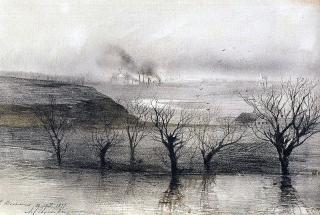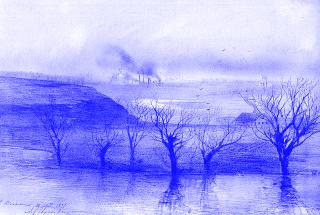Topic
Industrial water pollution in the late Russian Empire
Industrial pollution is a complex phenomenon: consisting of toxic poisonous matter, it at the same time represents a social compromise on the level of substances in the environment which is inappropriate. This project aims to investigate how the concept of pollution was formed in late imperial Russia and how it influenced the emergence of systemic environmental policies.

In dire straits: struggle with industrial water pollution in the late Russian Empire
Industrial pollution is one of the first signs that marked the limits of economic growth already in the nineteenth century. Changing the environment quickly and radically, it forced the officials, experts, industrialists and citizens to search for compromise and effective measures of pollution abatement which later laid in the foundations of systemic environmental policies.
There are a wide range of studies in the history of the struggle with industrial pollution in Western European countries and the USA, but Russia remains almost unexplored from this point of view. At the same time, the Russian Empire, an autocratic state with well-developed science and industry and a vast territory, could be a rich source of examples for better understanding of the first anti-pollution policies.
The project shows that environmental goals were a factor in Russia’s historical development long before the Soviet industrialization: anti-pollution movements created a legacy and institutions which proved strong enough to survive the political turmoil of 1917 and influenced the environmental policy of the USSR. By considering the environmental history of tsarist Russia from a transnational perspective, it becomes possible to situate it within the larger global history of struggle with industrial pollution of the environment.

